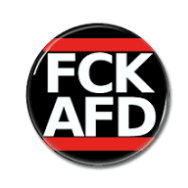Chula vote shows students’ liberal side
-
Recently Browsing 0 members
- No registered users viewing this page.
-
Topics
-
Popular Contributors
-
Latest posts...
-
28
Stop the war in 1 day, now it's an European thing
How many court cases? >50 How many wins? ZERO -
82
Is it worth it at 78 ? - Implant replacement teeth
That's about proper standard price for the Korean implant and a bit of bone. If she's good you did well. At all the big dental shops you could pay double or triple that. Im finishing up two neodent with CZ crown upgrades. One bone 10k another 30k. Better to have roving dentist as they are constantly working, gaining experience. -
12
Trump keeps dropping lawsuits against companies Biden said were cheating Americans
I was simply telling him what a scam is. Hes been to thailand and he still doesnt know -
12
Trump keeps dropping lawsuits against companies Biden said were cheating Americans
Sure you want to go down that road Patrisse ?? -
121
Maga/Trump's big ugly bill set to kick 14 million Americans off their health care coverage
Stop trying to act like you are a netural oberver. You are not a free thinker. -
7
Foreign currency account
Have tried it twice, both times I have got the same answer that you have to change at first o THB to transfer out of Thailand.
-
-
Popular in The Pub
-






.thumb.jpeg.d2d19a66404642fd9ff62d6262fd153e.jpeg)



Recommended Posts
Create an account or sign in to comment
You need to be a member in order to leave a comment
Create an account
Sign up for a new account in our community. It's easy!
Register a new accountSign in
Already have an account? Sign in here.
Sign In Now